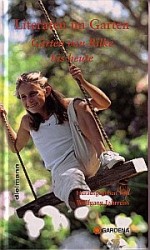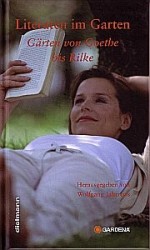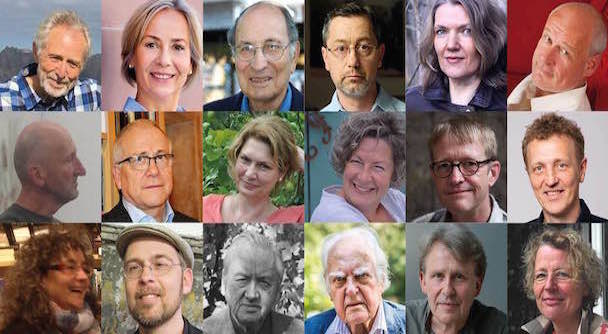Authors & Books
Wolfgang Jahrreiss

W. Jahrreiss: »Even if you heavily love the relaxing work with spades and watering pot – put hedge clippers and garden hose on side for a little while, posture garden bench or deckchair, and follow us to the literati in the garden.«

Literati in the Garden
Volume 2: from Rilke to this day
- Sponsor : Gardena AG Ulm
- 176 pages
- Series Label (Reihe ETIKETT)
978-3-933974-42-6

Literature in the garden: For the second time, writers portray their gardens, tell of their gardening and unfold the colorful life in the countryside in poems.
Again, we advise to let the bloodstream-supportive gardening rest for a bit – no matter, how big the love for roses and apple trees might be – for visiting the literature in the garden for a litle while. You will be enriched by handy tips as well as invigorated by good amusement and new perspetives when you return to garden hose and hedge clippers!

Literati in the Garden
Volume 1: from Goethe to Rilke
- Sponsor: Gardena AG Ulm
- 176 pages
- Series Label (Reihe ETIKETT)
978-3-933974-41-9

Literature in the garden: In extracts from the world literature, writers portray their gardens, tell of their gardening and unfold the colorful life in the countryside in poems.
With the first of three volumes, we are on the way through the gardens from the Romanticism until the early 20th century. Before we proceed with the contemporary and futuristic gardens in volume 2 and the gardens of ancient times and the Middle Ages in volume 3, we thus enter our grandparents’ and great-grandparents’ gardens: Therein, the garden is a symbol for the interplay of nature and culture. It’s a wondrous world in the works of E.T.A Hoffmann, an erotic little place with Casanova’s descendants, a self-contained cosmos in Goethe’s Wahlverwandschaften (Elective Affinities). On journeys of discovery with Alexander von Humboldt we look at jungle-like gardens in South-America; with Hans Christian Andersen, we rummage in fairy gardens; by Bram Stoker’s Dracula, we discover gloomy variants of the garden; we find useful hints in Rilke’s detail-oriented poetries about medicinal herbs and vegetables in the cloister garden; and the expressionists of the 1900s mirror the world and society in their flora, plant hardly any familiar plants, present us daring manners of use of real paradises and straggling fantasy parks.








